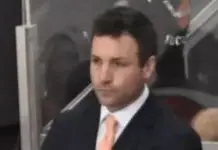Rensselaer president Dr. Shirley Ann Jackson released the strongest statement yet in response to pending legislation that would eliminate the ability of Division III institution from awarding athletic scholarships in Division I sports.
“If it is approved, this proposal could place Rensselaer’s well-respected hockey tradition in jeopardy, and hamper the ability of ice hockey players to receive the benefits of a Rensselaer education,” said Jackson. “Rensselaer has a fabulous tradition in ice hockey. It has sent a number of players to the National Hockey League (NHL), and has been inspirational and satisfying for our students, faculty, staff, alumni, and friends.”
Jackson follows administrators at St. Lawrence and Colorado College in voicing official concern. The three aforementioned schools, plus Clarkson, are the Division I men’s ice hockey programs that would be affected, as well as the St. Lawrence and Clarkson women’s programs. In all, 12 programs at eight schools will be affected, including the renowned Johns Hopkins men’s lacrosse program, winner of seven national championships.
ECAC commissioner Phil Buttafuoco also expressed concern, saying that he will attempt to begin a process of educating D-III presidents about the impact of the legislation. (Related Column)
The legislation is just one piece of a sweeping reform package passed by the Division III President’s Council last week. All other pieces of the legislation were unanimously recommended, while the scholarship legislation received the most discussion, but ultimately passed.
If passed by the full Division III membership at the annual January NCAA Convention, Division III schools that “play-up” in one sport would no longer be allowed to grant athletic scholarships beginning in 2008-09.
Middlebury president John McCardell, chair of the President’s Council, said to the Albany (N.Y.) Times-[nl]Union, “It seems inconsistent with our philosophy and difficult to defend as a practical matter that these schools, and only these schools, have the special privilege of awarding scholarships.”
Jackson’s statement voiced disagreement with that idea.
“The NCAA President’s Council recommended the proposal apparently in the belief that reforms are needed in Division III athletics to address the ongoing relationship between athletics and education,” Jackson said. “At Rensselaer, we scrupulously maintain a balance that encourages our hockey players to perform at optimum levels in academics and on the ice. These players truly represent the highest values of the scholar-athlete. Their grades, graduation rates, and their overall achievements in life are a testament to the success and integrity of our program. In short, Rensselaer already adheres to the spirit of the Division III philosophy, and, as such, is a credit to the NCAA.
“In our view, the NCAA should not punish the multi-divisional schools to address Division III concerns. Rather, the NCAA should consider conducting audits of all Division III institutions. Rensselaer’s program would easily withstand such scrutiny.
“We are proud of our athletic programs, our players, our fans, and our long tradition of Division I men’s ice hockey, which we intend to continue at Rensselaer as we support all of our athletic programs at the highest possible levels. Rensselaer will engage in a vigorous and sustained effort to defeat the NCAA President’s Council’s proposal.”
The ability to “play up” in one sport and award scholarships was grandfathered in for these 12 programs in 1982. It was a logical step following the creation of the three-division NCAA structure in the early 1970s, since the schools affected didn’t want to stop playing traditional opponents at the highest level, something they have been doing for upwards of 100 years in some cases.
“The institutions affected by these proposed changes will have an opportunity to respond and offer alternatives prior to and during the Convention,” said NCAA president Myles Brand, who, coincidentally is a 1964 graduate of RPI. “Their comments will be important to the discussion.
“The key point is that academic reform is moving forward on all fronts. The effort to integrate intercollegiate athletics with the goals of higher education is gaining momentum. Not everyone will be happy that steps are being taken to subsume intercollegiate athletics to institutions’ academic mission. But without question, it is the right thing to do.”
An online petition against the legislation has already generated almost 3,000 “signatures.”


